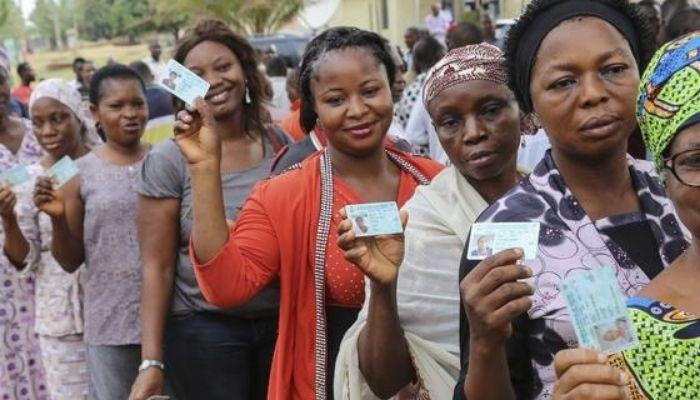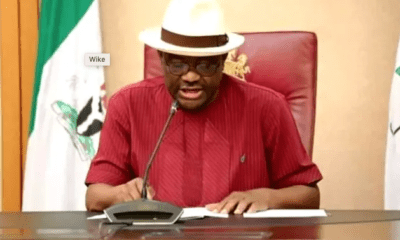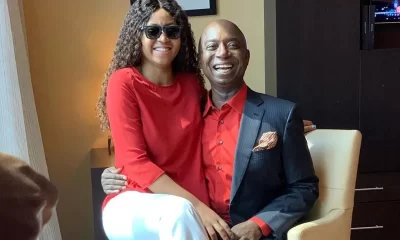Political Issues
Every Vote Should Count: Why Nigeria Needs Ranked Choice Voting -By Moshood Fakhir Abiola
Nigeria’s democracy is young and resilient, but the way Nigerians vote continues to leave many citizens disenchanted. To restore faith in our institutions and reduce post-election conflict, we need to reimagine how we vote.

Imagine this: It’s election day in Nigeria. You wake up, go out, and join long queues for several hours under the sweltering sun, finally casting your vote-a moment of hope, a badge of civic pride. Then, weeks later, your candidate loses. The next election comes along, and it’s more of the same.
For millions of Nigerians, this is a familiar cycle of disappointment. It’s not necessarily because they chose the wrong candidate, but rather, the system is simply designed in a way that most votes count for less.
At the root of this problem is Nigeria’s present electoral framework: the First-Past-the-Post system.
Understanding Nigeria’s Current Electoral System
First-Past-the-Post, also called the Plurality System, is in effect in Nigeria. It is inherited from the British colonial regime and is still common among former Commonwealth countries.
In FPTP, electors vote for just one candidate, and the candidate who receives the most votes is declared the winner-even if he or she does not obtain a majority of the votes (over 50%).
For presidential elections, there are two main criteria which a candidate needs to satisfy for winning:
They must receive the greatest number of votes in the country as a whole.
They must secure at least 25% of votes in 24 states, including the Federal Capital Territory.
If no candidate achieves both, then a runoff is held between the top two candidates. For other offices-governors, senators, members of the House of Representatives, and state assemblies-the winner is whoever receives the most votes, regardless of percentage.
The Problem with First-Past-the-Post
While FPTP seems simple, its flaws are increasingly visible in Nigeria’s political topography.
In the 2023 general elections, the ruling All Progressives Congress won the presidency by taking 36.6% of the total votes. Though this was the largest share, it also means nearly two-thirds of Nigerian voters preferred some other candidate.
This reality of a candidate being able to win without majority support creates three major problems:
Lack of representation: A large chunk of the electorate ends up not represented, feeling that their vote has been wasted.
Incentivizing political violence: FPTP creates a zero-sum environment in which losers are truly defeated. This often breeds hostility, ethnic division, and post-election violence.
Voter apathy and vote-buying: When the citizens believe their votes will not make any difference, they disengage. The politicians reciprocate by focusing on turnout manipulation and buying loyalty instead of winning genuine support.
In short, FPTP rewards division and discourages collaboration.
The Alternative: Ranked Choice Voting
What Nigeria needs to build a truly representative democracy is a system that assures majority support with less electoral tension. That system is Ranked Choice Voting.
Under RCV, voters would rank the candidates in order of preference 1st, 2nd, 3rd, and so on, instead of selecting only one candidate.
Here’s how it works: If no candidate gets more than 50 percent of first-choice votes, the candidate with the fewest votes is eliminated. That candidate’s ballots are then redistributed to the voters’ next preferred choice. This process repeats until a candidate wins with a clear majority.
This makes sure that the ultimate winner reflects the widest possible support in the electorate, rather than just a regional or partisan minority.
Several advantages are associated with RCV:
It reduces political violence because candidates have an incentive to appeal to wider constituencies.
It eliminates wasted votes so that every voter’s choice counts in the final result.
It discourages vote-buying, since it’s harder to manipulate preferences.
It encourages coalition-building and issue-based campaigning rather than identity politics.
Around the world, RCV has proven practical and effective in diverse democracies, such as Australia, Ireland, New Zealand, and parts of the United States.
A Way Forward for Nigeria
Nigeria’s democracy is young and resilient, but the way Nigerians vote continues to leave many citizens disenchanted. To restore faith in our institutions and reduce post-election conflict, we need to reimagine how we vote.
That is why a policy brief is being prepared to urge the Nigerian House of Representatives to pilot Ranked Choice Voting in select local or state elections. The pilot will permit INEC to test the viability of the system before scaling it nationwide. A reform of this kind would make the elections in Nigeria more credible and reflective of the people’s will. Change will not come unless demanded by Nigerians. This is a cause that every well-meaning Nigerian should add their voice to, for the sake of free and fair, non-violent elections. Share information about ranked choice voting. Engage your lawmakers. Tag your representatives and senators on social media using the hashtags #RankChoiceVotingNigeria and #EveryVoteCounts. Democracy works when every vote counts, when every voice is heard. What Nigeria needs is a system that can count every voice, every choice, and every vote. If we act now, 2026 can be the year our democracy finally starts to represent us.









